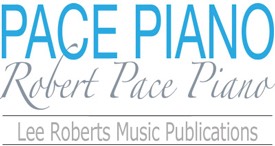
Piano methods often teach information as a series of isolated elements. Example: “The key signature for G major has one sharp on F.” Later, “The key signature for D major has a sharp on F and C.” Still later, “The key signature for A major has sharps on F, C and G…,” and so on.
Pace students instead learn big-picture concepts.
Example: “To identify ANY major sharp key signature……look at the last sharp and name the line or space directly above it.”
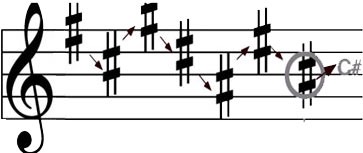
Big pictures give students the tools to learn on their own, along with learning from a teacher.
Lifelong Learning

Many approaches simplify material for basic levels by restricting students to a few highly similar tonalities.
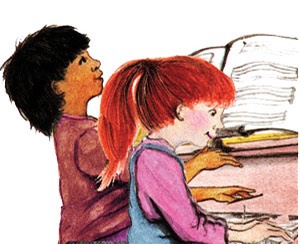
Developing aural acuity is a central goal of the Pace approach. This approach therefore favors a rich soundscape for beginning levels, and onward. Simplification is accomplished through careful structuring of concept sequences. This enables students to play and hear a lively range of sonorities—including all major and minor keys, plus pentatonic, whole tone, 12-tone, chromatic, bitonal, blues, and modal tonalities—rather than depending on teacher or CD accompaniments for tonal variety.
Aural Acuity

Piano methods frequently emphasize teacher-scripted activities over student-directed ones. Teacher-scripted activity: “For a different effect, change the final C to G.”
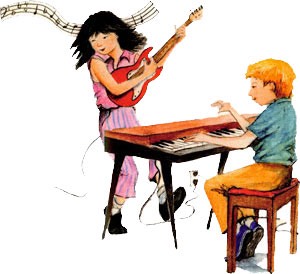
The Pace curriculum encourages student-centered learning by featuring student-scripted activities regularly.
Example: “Improvise your own new musical question-and-answers each day.” Student-scripted experiences build confidence and self-sufficiency.
Confidence & Self-Sufficiency

Some methods base mastery of material mainly on multiple direct repetitions. Creative activities are intermittent, and not a primary means for reinforcing learning.
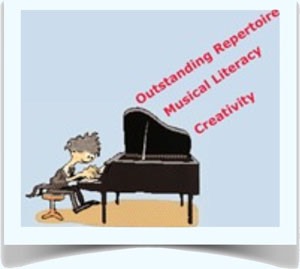
In-the Pace Approach, creativity is a cornerstone of the curriculum.
By regularly varying and transposing new material many ways, students practice recall while also creating something new.
This promotes student-directed learning and critical thinking skills.
High-level Thought Processes
By Cynthia Pace, EdD
